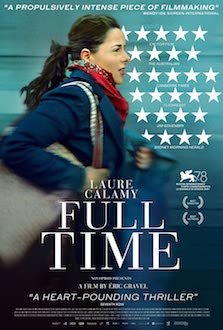Direction: Daniel Goldhaber
Country: USA
Marked by radical activism, the action thriller How to Blow Up a Pipeline is a relatively successful adaptation of the book of the same name by Swedish author/researcher Andreas Malm. For the screenplay of his sophomore feature, director Daniel Goldhaber teamed up with Ariela Barer, who also stars, and Jordan Sjol, opting for a handheld camera to intensify the most stressful scenes.
The plot follows a group of extreme environmental activists who decide to sabotage an oil pipeline in Western Texas, causing severe damage without harming people. All members of this group have their own motives and beliefs, which are further clarified by flashbacks. Their grounds for protesting are strong, but the question persists: is it justifiable to fight back with violence? Moral consciousness opens the debate on the acceptable limits of ecological activism.
Blending French new wave and Hollywood elements of the ’80s, the film, shot in 16mm, puts on airs while drawing from western and heist film genres. You kind of know how it will play out, but it's an elucidative close-up of destructive behavior in the name of a good cause. Terrorists or saviors of the world?
Regardless the answer, the film would need more narrative development, a stronger staging, and deeper character insight to fully satisfy. The tension builds up right from the start, and the story flies at full speed, electrifying everything around its path. And yet, this subversive audacity gives way to different feelings as the events unfold in a low-key manner. In the end, it falls short of the expectations, getting a few holes below Kelly Reichardt’s Night Moves (2013), which tackles the same topic with a higher level of competence.








































